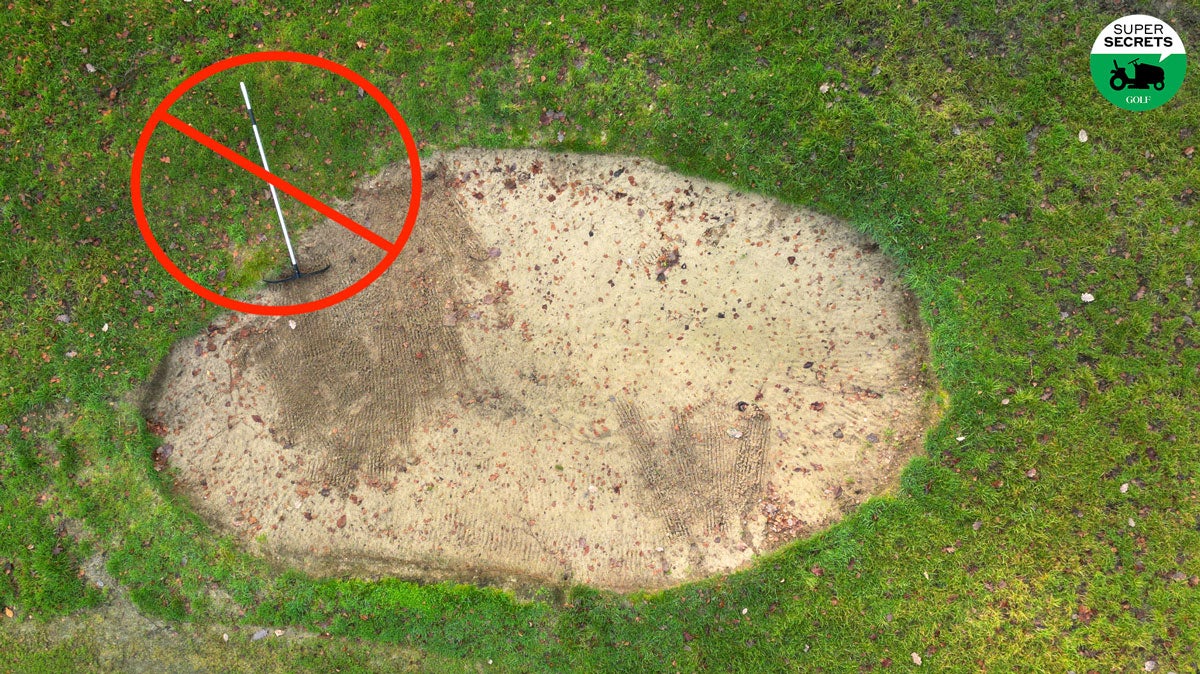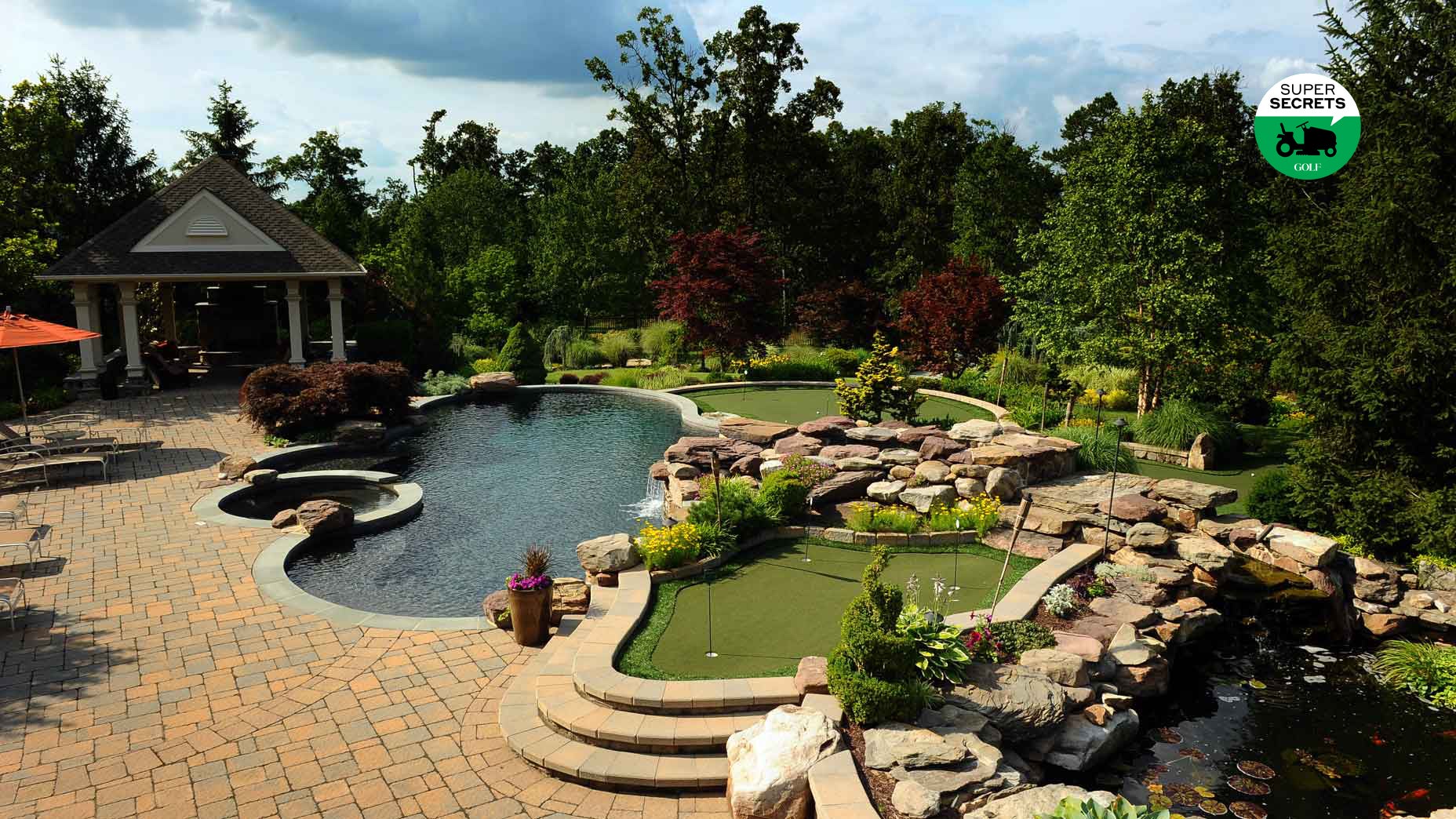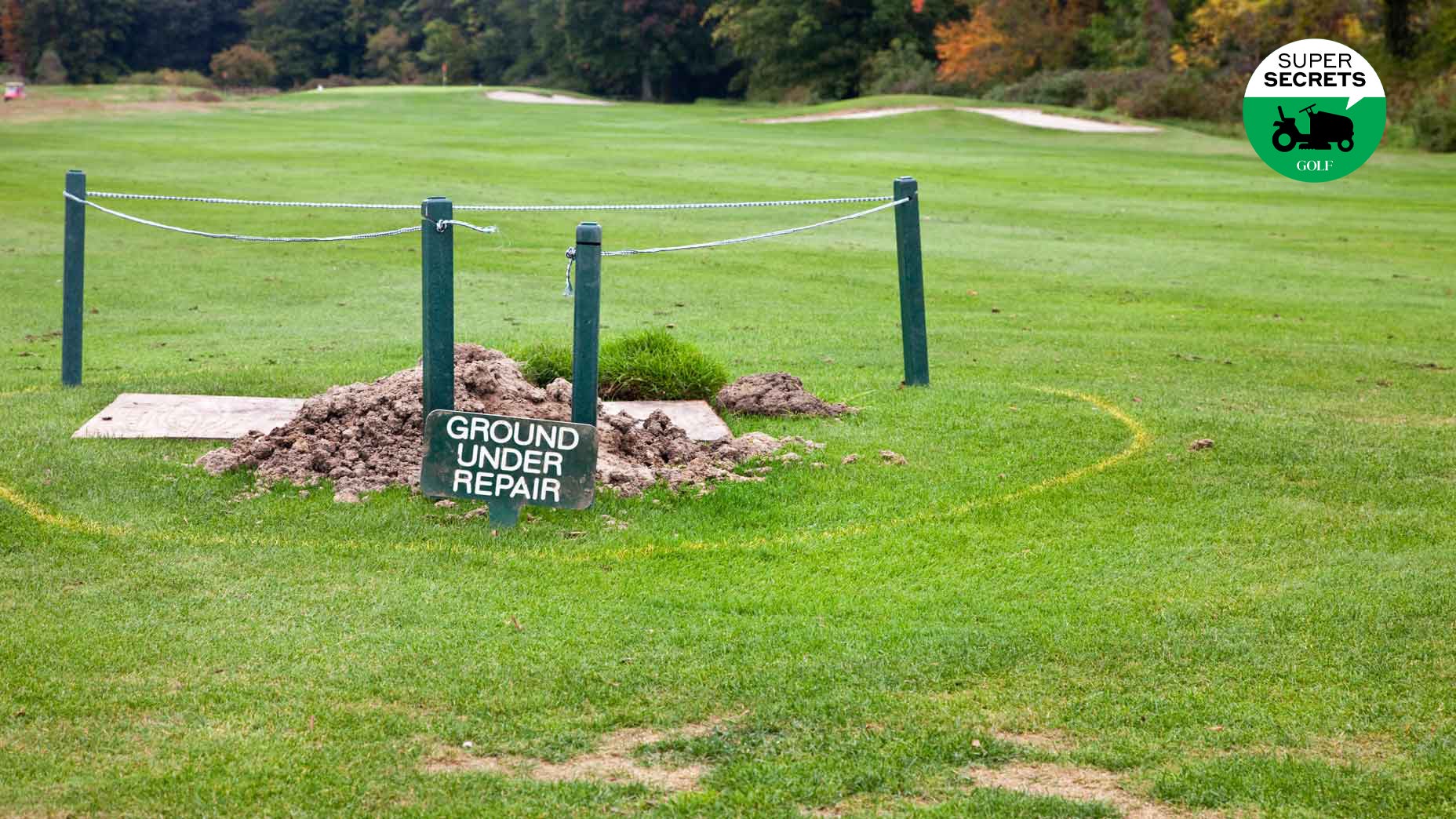“Whatever you do, do it well.”
The saying carries echoes of Ecclesiastes, but it could also pass as a mantra for superintendents as they plead with golfers to do their course-care part.
Consider bunkers, for instance.
Most players have no problem hitting into them, which is when the trouble starts. Not with poor sand shots, but with poor maintenance practices.
Mark Patterson, a longtime member of the Golf Course Superintendents Association of America, is the superintendent at Legacy Golf Club at Lakewood Ranch and Serenoa Golf Club, both in Florida.
We asked him about the most common mistakes golfers make in bunkers, and how to avoid them.
1. Entering and exiting on the high side
Altitude sickness can affect brain function. Maybe that explains why too many golfers enter and exit bunkers from the high side, clambering up and down steep faces like mountaineers. That a no-no. For starers, it produces deep and sloppy footprints, which take longer to smooth over. But that’s not all. Over time, all that tramping can harm the integrity of the bunker itself.
2. Half-hearted raking
One-handed golf swings can be strangely effective. One-handed rake jobs? Not so much. And yet a lot of golfers take that lazy tack, dragging the rake behind them — with sloppy results. In the long term, Patterson says, it’s the maintenance crew’s job to ensure that bunkers remain in good condition by checking sand levels, and tending to faces and edges and such. But in the short term — as in right after playing a bunker shot — it’s every golfer’s job to spend a few extra seconds and a little extra effort to rake with two hands, smoothing over the sand while backing slowing out of the bunker. You know you’ve done the job right when it’s hard to tell that you were ever there.
3. Leaving rakes in the line of play
Every shot makes someone happy. And maybe you’ve seen your opponent flash a sheepish smile when one of his bladed irons gets saved from the sand by a carom off a rake, which — let’s face it — was probably left in the wrong place.
Rules Guy: Is it legal for my partner to smooth the sand in my bunker?By: Rules Guy
Most courses have policies or preferences as to where rakes should be placed, whether it’s just inside the bunker, just outside or in a hybrid position, halfway in or out. Some clubs even print instructions on the handle. If you don’t know the policy or preference, you should ask. What’s more, when it comes time to set down the rake, place it as far from the fairway (or, if it’s a green-side bunker), as far from the green as possible, with the handle parallel to the line of play to further minimize the risk of interference.
4. Tracking sandy footprints
We’ve all come across them: ghostly footprints left on the putting surface by some spacey golfer up ahead who played from the bunker and forgot to tap his shoes clean. This is not so much bad for the green (light top-dressings of sand are part of routine maintenance, after all) as it is bad form: those sandy footprints are unsightly and can also, in some cases, sends putts off line. The solution is simple. As you exit the bunker, tap your shoes gently with your wedge, dislodging any lingering sand from your soles and letting it fall back where it belongs.











